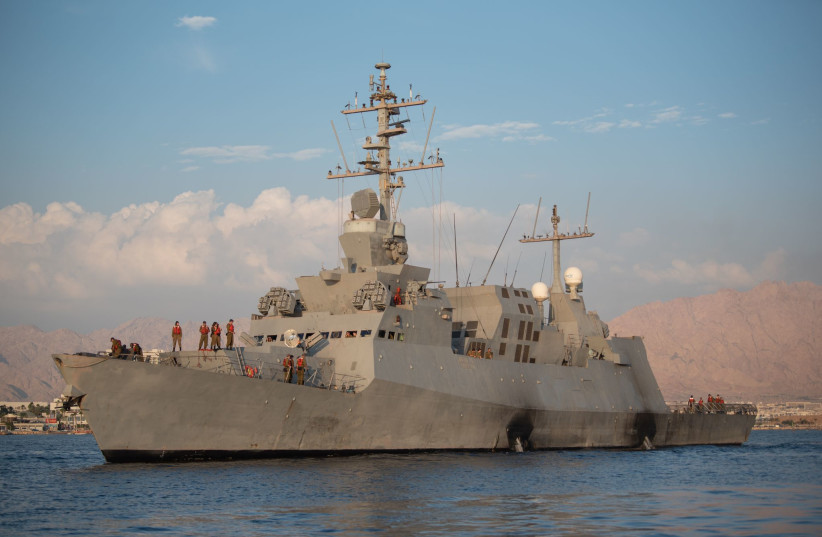On November 9, the Yemen-based Houthis claimed responsibility for a missile attack targeting Eilat, which was intercepted by Israel. Four days later, Iran-backed militias launched rockets on the US base in the Conoco gas field in northeastern Syria in retaliation for US strikes on Iran-linked targets in the Syrian cities of al-Mayadin and Abu Kamal.
As these attacks continue, and with Hezbollah in Lebanon exchanging fire with Israel, concern is rising about a potential regional offensive by Iran’s so-called “axis of resistance” in response to Israel’s invasion of Gaza. Indeed, the Houthis’ military spokesman Yahya Saree said that Houthi attacks on Israel would continue until Palestinians are “victorious.”
But what may look like a broader war is really the sum of many parts. Far from being a coordinated escalation masterminded by Iran to support Hamas, the different attacks on US assets and on Israel are mostly being driven by disparate groups pursuing their own domestic objectives. Support for Palestine mostly offers them a convenient shared justification.
For Iran-backed groups in Syria and Iraq, such as Al Nujaba and Liwa’ Abu Al Fadl Al Abbas, the objective is to pressure the US to withdraw its troops from the two countries. Militias have been attacking American bases in areas like Conoco and Al-Tanf since the US and its allies took Syrian and Iraqi territory back from ISIS in 2017. The US has been responding to those individual attacks with isolated counterattacks.

The cause for increased military exchange
The recent increase of these military exchanges is due to two interconnected factors. First, Iran-backed groups know that the Biden administration does not want to be involved in a regional war in the Middle East, especially when the next US presidential election is one year away. The war launched by Hamas on October 7 has only made this US concern more acute. Second, Israel’s security is a main concern for the US, its most essential ally. With Israel fighting Hamas, Iran-backed groups may think the US will prioritize protecting Israel rather than bolstering its presence in Syria and Iraq.
The militias in both countries are acting on this perceived vulnerability, even as they reference Palestine to justify their attacks. The secretary-general of Al Nujaba, Akram al-Kaabi, issued a statement on November 9 on X in which he said that what is happening in Gaza is an illustration of “American-Zionist crimes” that can only be responded to with “complete eradication.”
In Yemen, the Houthis shot down a US drone in international waters on November 8, and have been launching missiles and drones toward Israel since October 19. The Houthi government prime minister, Abdelaziz bin Habtour, described the strikes as part of a military campaign by the “axis of resistance,” saying there is a “joint operations room, and a joint command for all these operations.”
The objectives of the Houthis
But the Houthis’ goals are local, not regional. The group remains under pressure from the Saudi-led campaign in Yemen, which began in response to the Houthis’ attempt to oust the Yemeni president in 2015. Their primary objective is to drive out the Saudi-led coalition so they can expand their control in the southern provinces and rule all of Yemen. Being seen as part of a larger, regional camp makes the group appear stronger than it is and helps it assert authority over the local population, which is increasingly critical of its ineffective governance. Neither framework is convincing, however.
Then there’s Hezbollah. Designated as a terrorist organization by the US and the UK among others, the group has been launching rockets toward Israel from Lebanon’s southern border. The attacks and Hezbollah leader Hassan Nasrallah’s recent speeches give the impression that Hezbollah is directly involved in the liberation of Palestine. In reality, Hezbollah has been keeping its battles with Israel contained, with its main priority being self-preservation. Hezbollah is Iran’s most important asset in the Middle East and will not be sacrificed for Palestine. Like the other groups, it’s paying lip service to the Palestinian cause without actually engaging in the Palestinians’ fight.
Iran fears consequences
IN THEORY, Iran can rally Hamas, Hezbollah, the Houthis, and Iran-backed groups in Iraq and Syria to launch a multifront war on Israel. But Iran does not want such a war to happen, because the consequences would be catastrophic for its regional assets and for the country itself – such a scenario would spark a military response from the US that would include an attack on Iran.
The US is on the same page, persistently conveying to the Israeli and Lebanese governments that this must not become an all-out war. Although the geographical scope of Hezbollah’s and Israel’s military exchanges has widened, both continue to abide by the limit of their rules of engagement, not conducting any attacks leading to large numbers of civilian casualties.
The likelihood of the various Iran-backed groups in the region sacrificing their domestic gains and objectives for the sake of Hamas is low. But further escalation could be driven by their calculations that the ongoing Hamas-Israel war offers more opportunities to claim local authority. The longer the war, the more such opportunities they have – and the greater the risk of a catastrophic miscalculation that sets off a wider conflict that most ultimately wish to avoid.
The writer is director of the Middle East Institute at SOAS University of London. This column does not necessarily reflect the opinion of the editorial board or Bloomberg LP and its owners. (Bloomberg/TNS)
